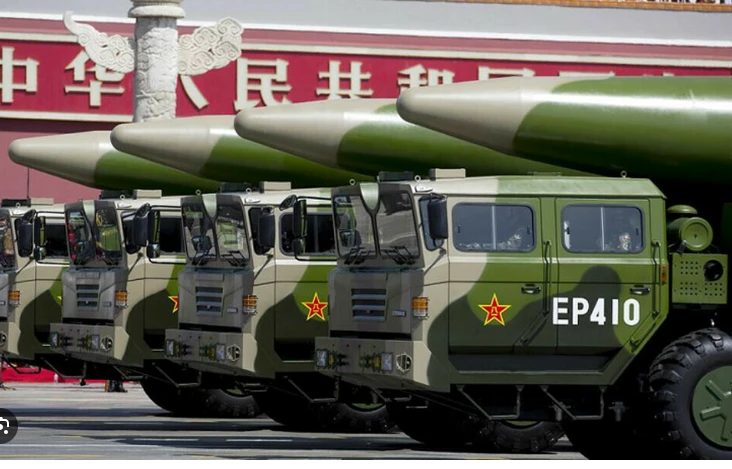China halts nuclear arms talks with US over Taiwan weapons sales

Stay tuned with 24 News HD Android App

China said Wednesday it had suspended negotiations with the United States on nuclear non-proliferation and arms control in response to Washington's weapons sales to Taiwan.
The US and China in November held rare talks on nuclear arms control, part of a bid to ease mistrust ahead of a summit between leader Joe Biden and Xi Jinping.
Further dialogue had not been publicly announced since, with a White House official in January urging Beijing to respond "to some of our more substantive ideas on risk reduction."
But China's foreign ministry on Wednesday said recent US sales of arms to self-ruled Taiwan were "seriously undermining the political atmosphere for continued arms control consultations between the two sides".
"The US has... continued its arms sales to Taiwan, and taken a series of negative actions that seriously damage China's core interests and undermine political mutual trust," foreign ministry spokesman Lin Jian said.
"For this reason, China has decided to suspend negotiations with the United States on a new round of arms control and non-proliferation consultations," he added.
The Pentagon in a congressionally mandated report last October said that China was developing its nuclear arsenal more quickly than the United States had earlier anticipated.
China possessed more than 500 operational nuclear warheads as of May 2023 and is likely to have more than 1,000 by 2030, it said.
The United States currently possesses about 3,700 nuclear warheads, trailing Russia's roughly 4,500, according to the Stockholm International Peace Research Institute, which counts 410 warheads for China.
"China is willing to maintain communication with the United States on international arms control issues on the basis of mutual respect," Lin said.
"But the United States must respect China's core interests and create necessary conditions for dialogue," he warned.
The United States switched diplomatic recognition from Taipei to Beijing in 1979 but it has remained Taiwan's most important partner and biggest arms supplier, sparking repeated condemnations from China.
Washington in June approved two military sales to Taiwan worth approximately $300 million in total, mostly of spare and repair parts for the island's F-16 fighter jets.
Trump says Taiwan 'should pay'
Taiwan "should pay" the United States for defence, US presidential candidate Donald Trump said in a wide-ranging interview that has cast doubt on the relationship between Washginton and Taipei should he be re-elected in November.
In an interview with Bloomberg Businessweek published on Tuesday, the former president was asked if he would defend self-ruled Taiwan from China, which claims the island as part of its territory.
"I know the people very well, respect them greatly. They did take about 100 percent of our chip business. I think, Taiwan should pay us for defense," he said, according to a transcript released by Bloomberg.
"You know, we're no different than an insurance company. Taiwan doesn't give us anything."
While Washington does not diplomatically recognise the island, it is a key partner and major weapons provider to Taipei, and recently passed a multi-billion-dollar military aid package aimed at countering Beijing in the region.
Taiwan is also a major powerhouse in the crucial semiconductor industry, producing the majority of the advanced microchips needed to power the global economy.
A leader in the field is Taiwan Semiconductor Manufacturing Company (TSMC), which has been a key beneficiary of Washington's Chips and Science Act -- passed in 2022 to attract companies to invest in building chip factories on American soil.
Thanks to the law, TSMC is building two plants in the United States and announced plans for a third in April, bringing its total investment up to $65 billion.
Trump lamented in the interview that Washington was "giving them billions of dollars to build new chips in our country, and then they're going to take that too".
"I don't think we're any different from an insurance policy. Why? Why are we doing this? They took almost 100% of our chip industry, I give them credit," he said.
Acknowledging Trump's comments on Wednesday, Taiwanese Premier Cho Jung-tai pointed out Taipei had steadily boosted its defence budget in recent years.
"We are willing to take on more responsibility; we are defending ourselves and ensuring our security," he told reporters during a press briefing.
"We are also clear that Taiwan-US relations have been very strong in recent years. Maintaining peace and stability of the Taiwan Strait and Indo-Pacific region is our common responsibility and goal."
China has said it will never renounce the use of force to bring Taiwan under its control, and has also ramped up rhetoric about "unification" being "inevitable".
